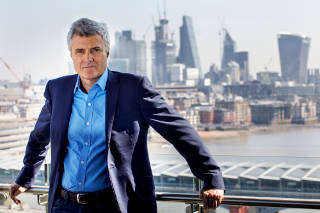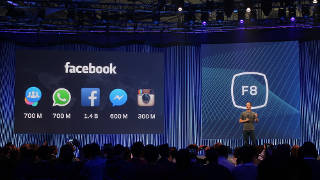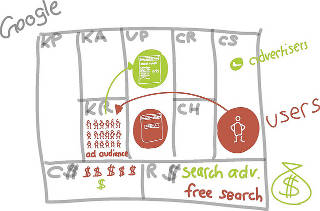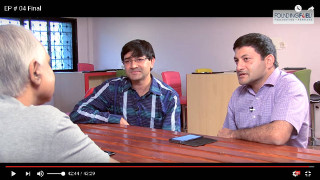[Fresco by Italian painter Giuseppe Bertini (Public domain), of Galileo Galilei showing the Doge of Venice how to use the telescope.]
Dear friend,
“Curiosity killed the cat,” said a friend, a senior executive in the corporate world. We were planning to catch up over breakfast and were deciding on a place. He opted for the same place we have been going to for years. And I wanted to try something else. “I am curious if there are any new places around,” I had said. In response to which the 18th century proverb was hurled my way. We ended up eating at the same place.
Ours is a world that reeks of change at breakneck speed. To poke around with a sense of wonder and curiosity is often dismissed as a “waste of time” or “slacking” at its worst and as an “optional extra” at its best. Add to that concoction a preference for precise measures and tangible outcomes, coupled with discomfort with anything grey. Top that with no time for reflection, deep work and an accent on this quarter’s numbers. That is a recipe to kill curiosity in the best of cats!
Why does it matter? Well, it matters because curiosity is among the top predictors of success. It is the foundation of innovation, creativity and change. A curious person is someone who is staying open to learning and engaging. Someone who seeks new experiences and is willing to experiment. This is a person who looks at “what is” and is happy to poke around to build an alternative reality. The big changes are ushered in by such people.
Take the case of the merger of Wunderman (nice name, won’t you agree?) and JWT. One a digital newbie, the other a global ad superpower. Fascinating play. What must have been on the mind of WPP CEO Mark Read for the idea to have germinated? Indrajit Gupta examines the field and pokes around like only he can. A deeply incisive read that ends with a few questions. Those may seem like questions that time will answer. But those are for you too to mull about.
Even while you consider what thoughts they trigger in you, pause to catch up with my colleague NS Ramnath’s take on Facebook’s travails. The question on his mind: Was Facebook done in by its culture or its business model? Or something else that runs deeper? Ramnath holds aloft these questions under the light and examines them in depth.
Curiosity-laden conversations keep us engaged at Founding Fuel. Here’s something that we use in various innovation and organisational transformation projects, for you to consider. We begin with asking “How might we….” It brings energy and life to a conversation for it spawns numerous options. It brings alive possibility and it lays emphasis on the collective. It has spurred constructive debate and, of course, intellectual curiosity. The next time your team meets, begin your questions with a “How might we….” and unfurl curiosity.
As I told my friend this morning, over breakfast, curiosity perhaps killed cats in the 18th century, if at all! Today, in the choice-filled uncertain times we live in, curiosity determines how rich our lives can be.
Regards,
Kavi Arasu
Featured Stories
The new ‘mad men’ in town

[From WPP.com]
The global merger of JWT and Wunderman is a signal of how a new combination of techies and fuzzies might dominate the world of innovation and marketing. (By Indrajit Gupta. Read Time: 5 mins). Read Now
Senator, we sell bads

[By Maurizio Pesce from Milan, Italia (CC BY 2.0), via Wikimedia Commons]
Facebook is undergoing a moral crisis. Is it because of its business model, its culture, or something deeper? (By NS Ramnath. Read Time: 7 mins) Read Now
What We Are Reading
The next great (digital) extinction
Joi Ito | “I’m pretty sure we’re in the midst of a … disruptive and pivotal moment in history that I’m calling the Great Digitization Event, or GDE. And right now we’re in that period where the oxygen, or in this case the internet as used today, is rapidly and indifferently killing off many systems while allowing new types of organizations to emerge.” Read Now
World Development Report 2019: The changing nature of work
How the nature of work is changing as a result of advances in technology today. Read Now
“When you get that wealthy, you start to buy your own bullshit”: The miseducation of Sheryl Sandberg
Duff McDonald | Harvard Business School invented the “leadership” industry—and produced a generation of corporate monsters. No wonder Sandberg, one of the school’s most prominent graduates, lacks a functioning moral compass. Read Now
In Yemen, lavish meals for few, starvation for many and a dilemma for reporters
Declan Walsh | In embattled Yemen, the contrasts are stark as desperate beggars congregate outside markets filled with goods for anyone who can afford them. Should a journalist put down his notebook and help? Read Now
From Our Archives
How to build a business model

[By Alexander Osterwalder under Creative Commons]
R Sriram | Some pointers to books, articles, websites and hidden links on what it takes to build a great business model. Read Now
Digital inclusion and the $30 billion opportunity

Rajesh Srivastava | English dominates the internet, excluding crores of Indians. In this video, Reverie Language Technologies’ co-founders Arvind Pani and Vivekanand Pani talk about bridging the language barrier, what to look for in a co-founder, and why startups should not rush to get investors. Play Now
The return to humanness and collaborative innovation

[By Taste of Cinema (Public domain), via Wikimedia Commons]
Indrajit Gupta | In this never ending race for greater productivity and measurement, the practice of management appears to have lost touch with real human values. It is time to correct that. Read Now


